Your Ultimate Guide to DeFi Wallet Apps
Discover how to choose the right DeFi wallet app. This guide covers features, security, and strategies to turn your wallet into a powerful trading tool.

February 8, 2026
Wallet Finder

November 26, 2025
.avif)
Making money in crypto isn’t just about what you buy. It is about where you store it and how you use it.
Ethereum is now the go-to network for DeFi, with billions of dollars locked in lending, staking, yield farming, and more. However, if you don’t know how to use the right wallet, you will miss out on important features and risk the security of your assets.
Wallets compete for different strengths — mobile access, staking functionality, browser extensions, or additional layers of security. The key is in knowing which one fits your needs.
That’s why tools like Wallet Finder.ai matter.
While your wallet manages your assets, WalletFinder helps you follow the wallets that are currently profitable. You can even check their trades, filter by real profits, and connect your wallet to compare their strategy with yours. It is the smart way to trade smarter.
Here are the best Ethereum wallets for DeFi trading, along with their details to help you choose the one that fits your persona.
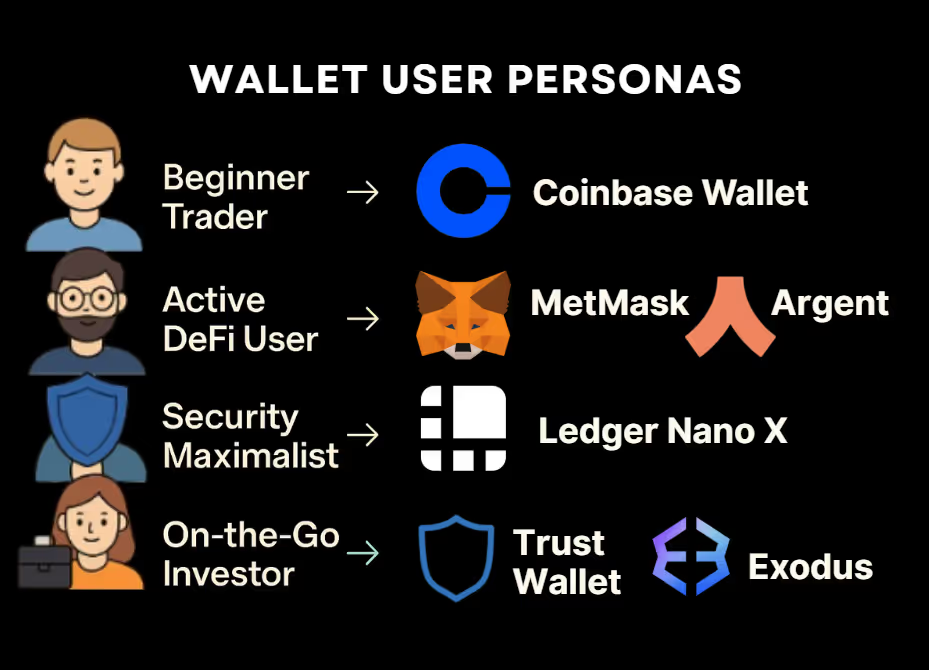
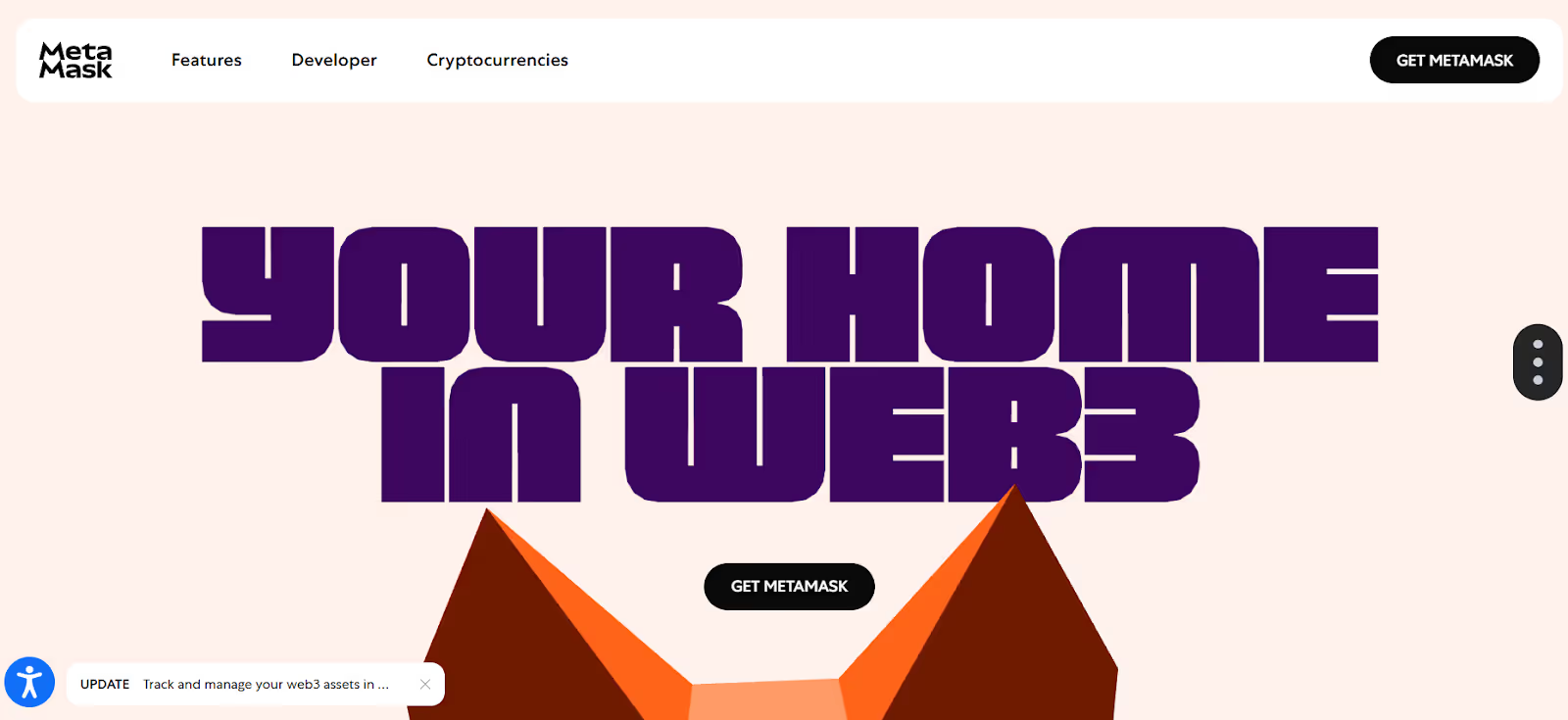
MetaMask is one of the best Ethereum wallets and is highly popular. It works within your browser and your mobile device and allows you to interact with decentralized applications, trade on DEXes, and manage the ERC-20 tokens. It doesn’t matter if you’re staking tokens, swapping assets, or learning about DeFi; MetaMask is an easy app without a sharp learning curve.
● Browser extension for Chrome, Firefox, and Brave
● Supports Ethereum and compatible blockchain networks
● Custom gas fee settings
● Integrated token swap function
● Earn rewards
● MetaMask cards
● Wide DeFi support
● Clean, user-friendly interface
● Active development and strong community support
● Supports a wide range of ERC-20 tokens
● Browser extension setup may be risky if phishing links are clicked
● No built-in staking (requires connecting to external DeFi apps)
● Not ideal for large crypto storage due to online exposure
MetaMask is a non-custodial wallet, which implies that no one can interfere with your private keys and access your coins. That also means you are responsible for the safety of your backup phrase. Although it is convenient to use daily for DeFi, it is not suitable for storing large amounts of money due to the possible threats online.
MetaMask is a reliable option for people who are very active in DeFi and trading. It is easy to set up, can be used with almost any Ethereum dApp, and keeps things simple. Make sure to be extra careful when accessing it on a browser and double-check the sites you are trying to connect to.
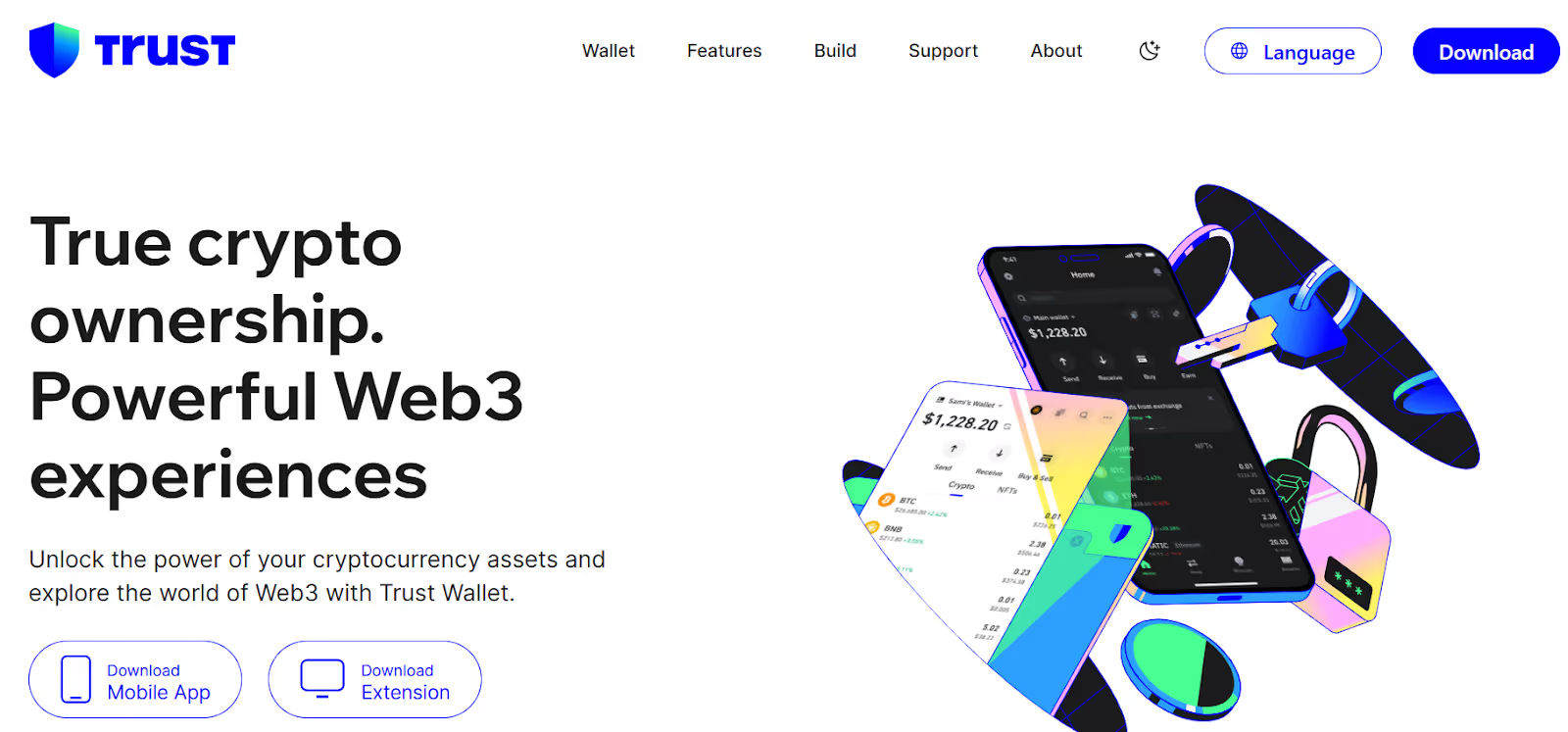
Trust Wallet is a mobile-first wallet, which is suitable for those willing to control their crypto on the go. Powered by Binance, it supports a wide range of blockchain networks, includes in-app access to decentralized exchanges, and allows you to store, stake, and exchange tokens simply on your phone.
● Mobile wallet available on iOS and Android
● Built-in decentralized exchange and browser for dApps
● Supports Ethereum and other blockchain networks like BNB Chain and Polygon
● Staking available for select tokens
● Multi-cryptocurrency wallet with support for ERC-20 and BEP-20 tokens
● Integrated token swap function
● Wide support for DeFi platforms and assets
● Easy to use for both beginners and experienced users
● Works well across multiple blockchain networks
● Built-in dApp browser for DeFi access
● No desktop version
● Manual backup needed
● Limited control compared to advanced hardware wallets
Trust Wallet is not a custodial wallet, meaning that your private keys are stored in your device, not in the clouds or a centralized server. This gives you total control of your funds while you are required to take safety measures on your own, such as storing your recovery phrase offline.
Trust Wallet is a great option if you need mobile convenience with strong DeFi features. It comes especially handy for daily swaps, staking, and dApps usage on the move. Just be sure you are comfortable controlling your backup and private keys.
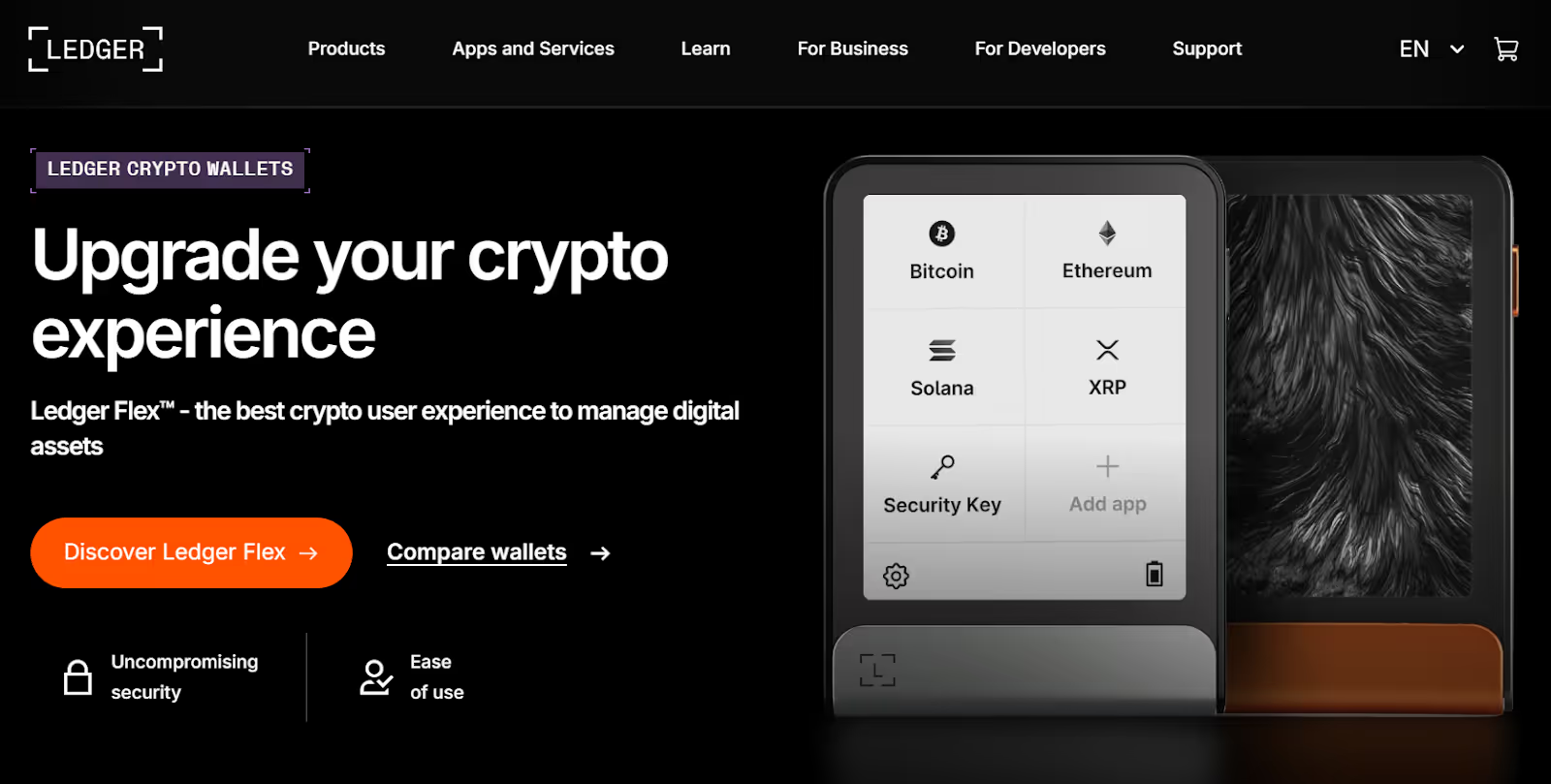
Ledger Nano X is a hardware wallet designed for those who are seeking strong protection for their crypto, particularly those who are holding large amounts of crypto for trading. Ledger maintains private keys offline in a physical device rather than storing them online. This offers an additional layer of security. It is not as easy to use as a mobile app, but it is trusted by experienced traders concerned about safety first.
● Hardware wallet with Bluetooth and USB support
● Stores private keys offline
● CL card
● Digital backup
● Crypto wallet app
● Offline storage
● Supports a wide range of cryptocurrencies
● Can be paired with software wallets for DeFi trading
● Requires a physical device
● More steps to access funds compared to software wallets
● Higher upfront cost
Ledger Nano X has an inbuilt private key in a secure chip that never links to the internet. This protects your funds from online threats. It is one of the safest options for storing Ethereum and other crypto-assets if you will store them for a long time.
When security is the most crucial factor, Ledger Nano X is the best Ethereum wallet for traders and investors. It is not convenient to use, but if you manage serious funds or want to control your crypto storage completely, it is worth the effort.
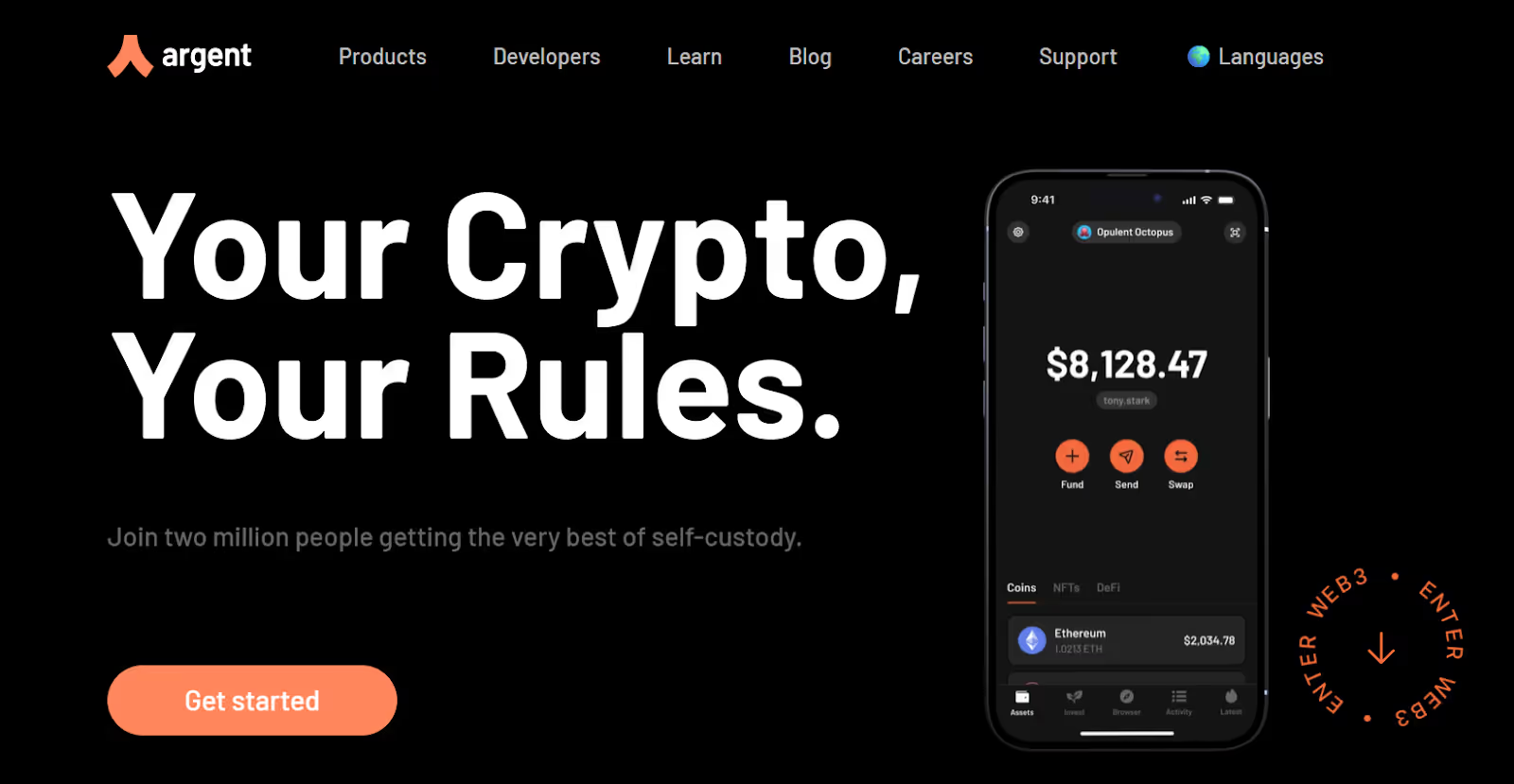
Argent is a smart contract wallet explicitly built for Ethereum. It has a different approach than a traditional wallet as there is no seed phrase, browser extension, or complex setup process. Instead, it is based on security in terms of built-in recovery options and a clean mobile experience. It is particularly of help to DeFi users, who need to engage with smart contracts without any complexity.
● Mobile wallet
● Social recovery and trusted contacts
● Supports Ethereum and ERC-20 tokens
● Direct access to DeFi protocols like Aave and Yearn
● Built-in staking and savings features
● Argent metal card
● Portfolio management
● Easy to set up and recover
● Built-in DeFi integrations with top platforms
● Only supports Ethereum and ERC-20 tokens
● No desktop version
● Limited to users managing wallet guardians or contacts
Argent uses smart contracts to protect your wallet. Rather than a recovery phrase, it allows you to pick trusted contacts (guardians) who can help you recover access to your device if it is lost. This configuration eliminates the necessity to put on paper a 12-word key phrase and renders the wallet safer for operational use.
It is decent for those who would like to venture into DeFi but with no hustle for technical setup. If you are a beginner or simply want a simple e-wallet with built-in Ethereum features, Argent makes it easier to get involved and stay protected.
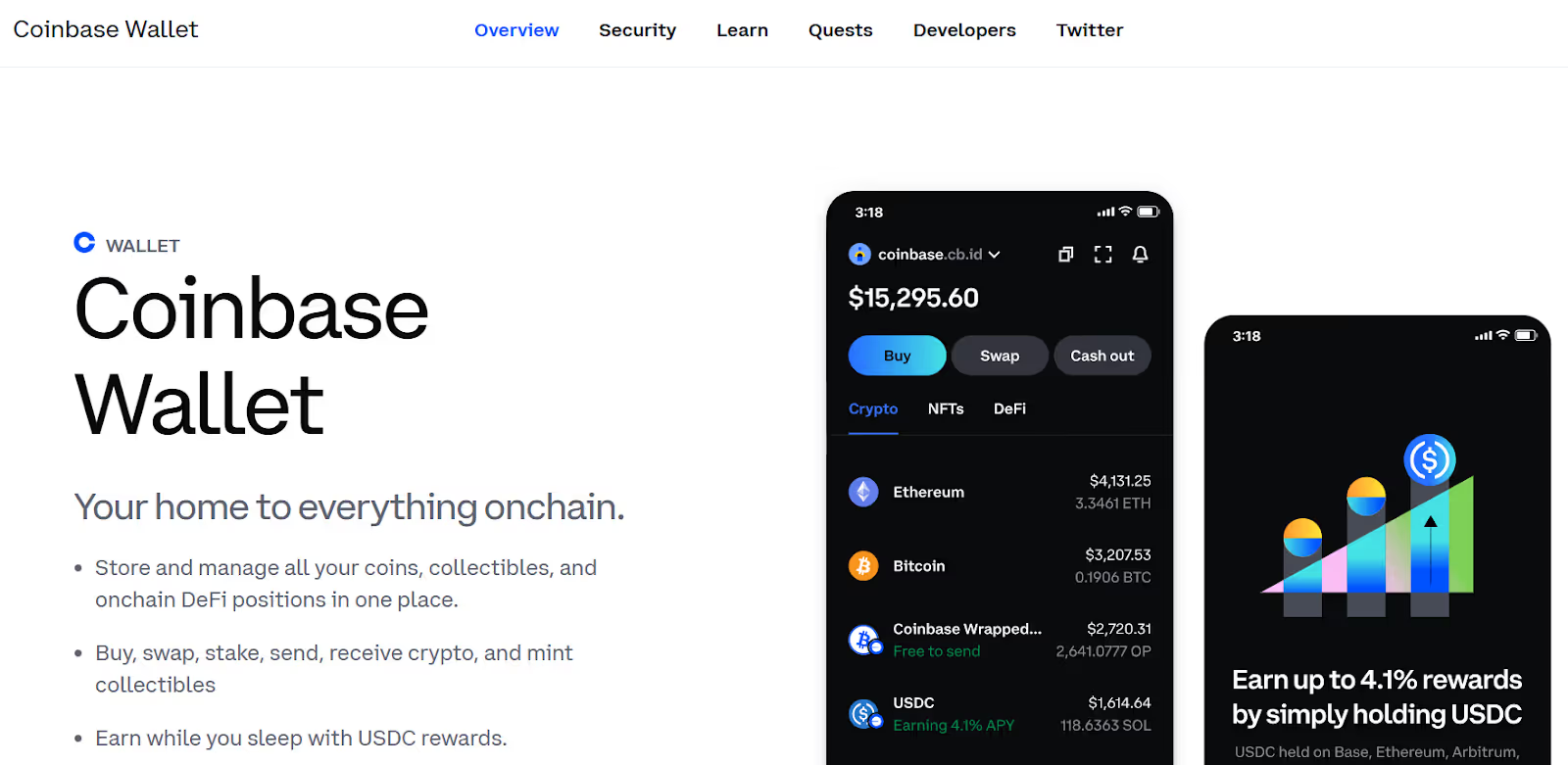
Coinbase Wallet is the solo wallet from the team behind one of the biggest crypto exchanges in the world. Unlike the core Coinbase app, this is a non-custodial wallet, meaning you keep your private keys. It’s great for DeFi, crypto trading, and storing ERC-20 tokens. Coinbase provides you with built-in access to the decentralized applications and exchanges without logging in to the central Coinbase platform.
● Mobile app and browser extension support
● Built-in dApp browser
● Supports multiple blockchain networks
● Swap tokens directly from the app
● Import other wallet types
● Link with Ledger for extra protection
● Simple and familiar interface for crypto users
● Connects directly to smart contracts and DeFi platforms
● Built-in support for NFTs and crypto assets
● Limited if you prefer to stay outside centralized platforms
● Frequent issues with transaction fees during high network activity
● Not as feature-rich as some more advanced wallet software
Coinbase Wallet provides a blend of security features aimed at novice traders, as well as intermediate traders. You have access to the private keys, and you can attach a physical device such as Ledger if you want maximum security. It is non-custodial. Hence, the duty is on you to protect your wallet.
This is a good choice if you need a clean, easy-to-use multi-cryptocurrency wallet for Ethereum, DeFi, and the Coinbase exchange. It is especially suitable for those people who are getting to know cryptocurrency transactions themselves and need something familiar.
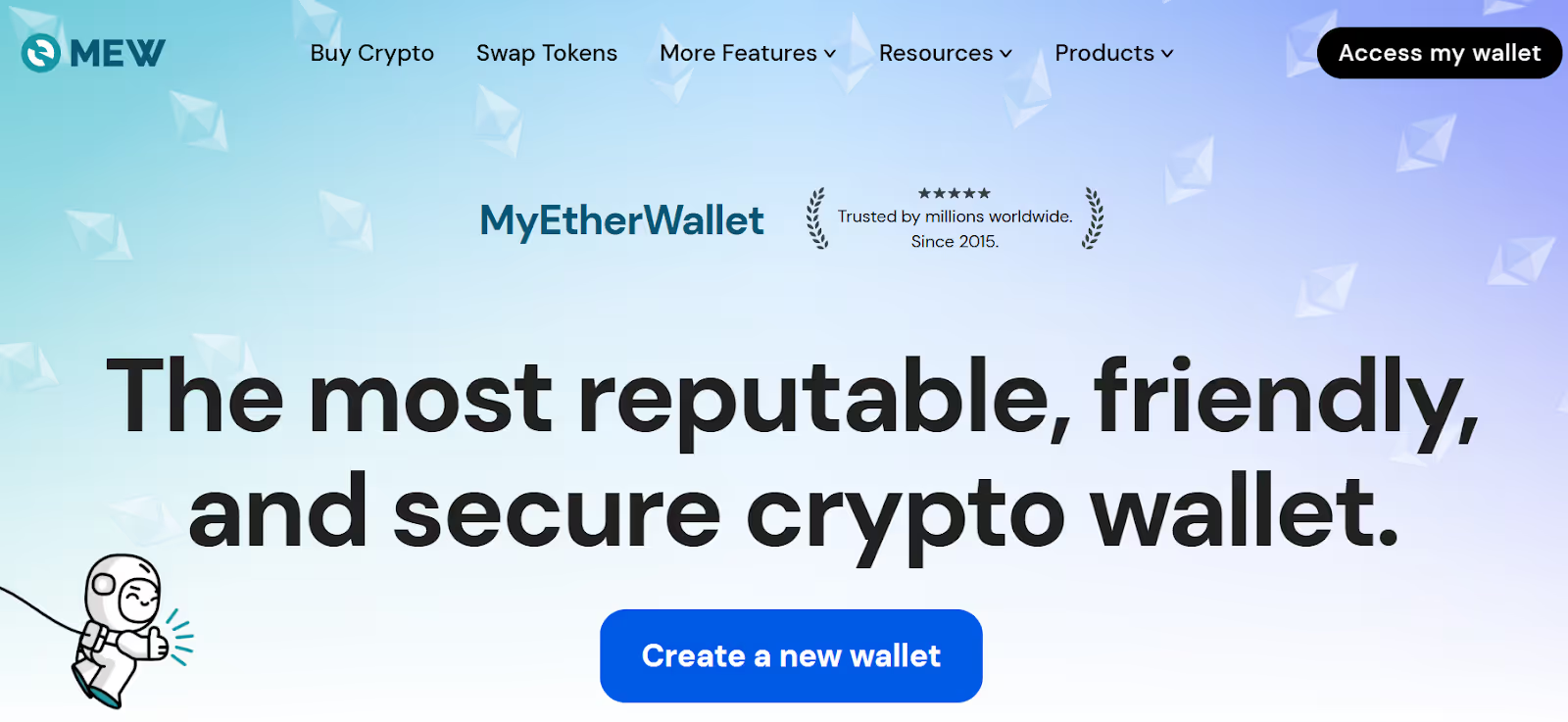
MyEtherWallet, or MEW, is one of the best Ethereum wallets, giving users complete control over their funds and private keys. It is web-based and also supports integration with hardware wallets and desktop wallets, which makes it a decent choice for people interested in manually managing their assets while using DeFi.
● Web-based interface
● Connects advanced hardware wallets
● Built-in access to decentralized exchanges
● Contract addresses for custom tokens
● NFT support
● Crypto rewards with staking
● Full control over your wallet software
● Works well with multiple wallet types
● Supports integration with hardware devices
● Web interface may be confusing for new users
● Higher chance of unauthorized access if phishing links are clicked
● Requires understanding of blockchain assets and crypto storage
MEW is non-custodial, and users hold their own private keys. It’s secure if used correctly, but mistakes like entering a fake URL or skipping backups can lead to serious risks.
MEW is a great choice for experienced users who want manual control and flexibility. If you know your way around Ethereum wallets, analytics and want direct access without any advanced setup, MEW does the job.
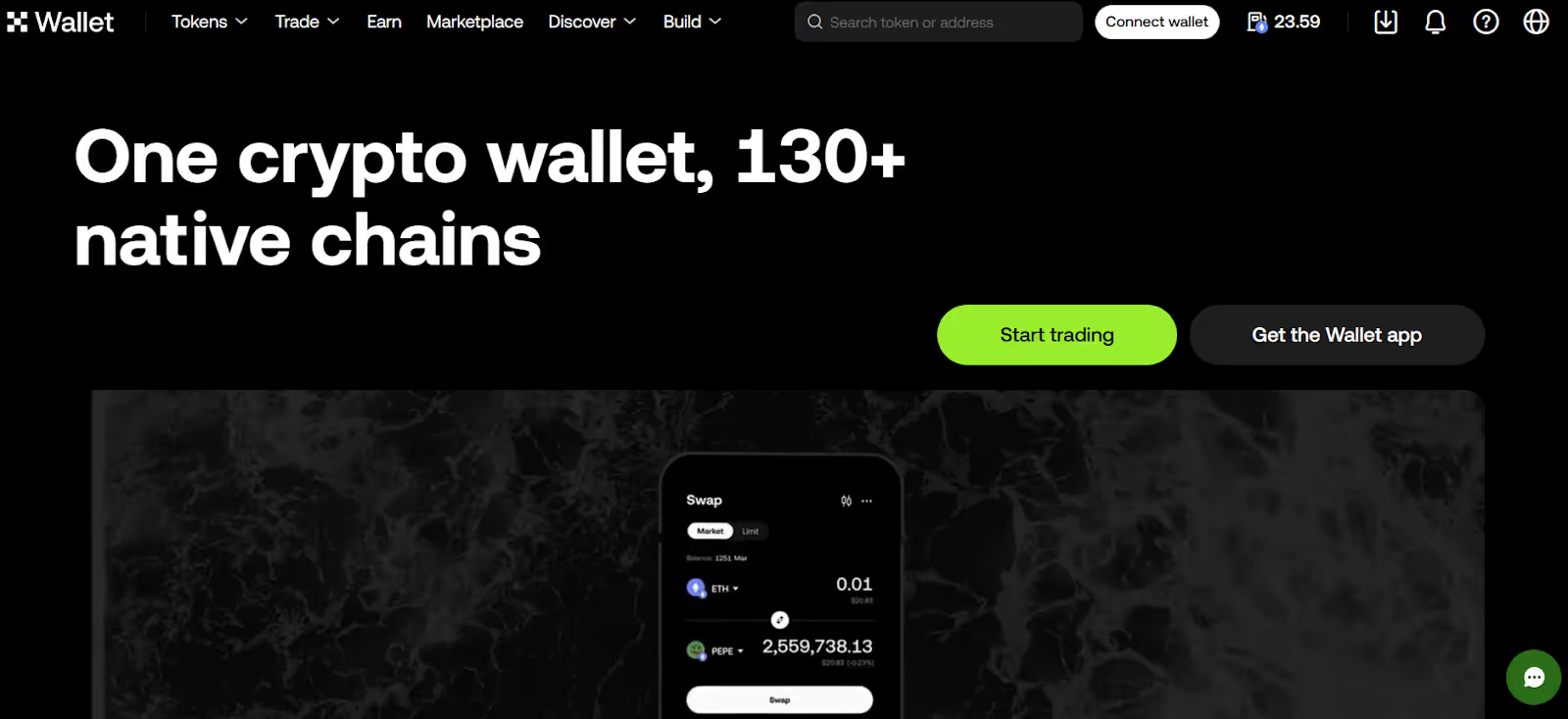
OKX Wallet is the self-custody wallet of the OKX exchange that provides users access to crypto trading, DeFi, and NFTs on various blockchain networks. It is built for those users who need a smooth transition between centralized and decentralized finance, having support for thousands of cryptocurrency assets.
● Available as a browser extension and mobile app
● Supports Ethereum, BNB Chain, Polygon, and more
● Leaderboard charts
● Manage entire portfolio across multiple chains
● Integration with OKX exchange
● Wallet tracker
● Token swaps
● User-friendly interface across devices
● Supports multi chain currency holding
● Direct connection to DeFi apps, swaps, and crypto storage
● Tied to a centralized exchange (OKX), which might not appeal to all users
● Not as customizable as competitor crypto software wallets
OKX Wallet is non-custodial, meaning you are the key holder. It contains traditional security measures such as passwords and recovery phrases.
OKX Wallet is a smart pick for users who want both the flexibility of a self-managed wallet and the convenience of exchange-level features. If you're already using OKX or want a wallet that works well across compatible networks, this wallet can help you in the long run.

Guarda is a multi-cryptocurrency wallet that supports web, desktop, mobile, and even a Chrome extension. It’s aimed at those who want absolute control over their crypto assets, while managing them on any device, without losing access to DeFi, token swaps, or staking capabilities. To make smarter trading decisions, our Blockchain Analytics for Spotting Profitable DeFi Trade Patterns guide explains how to identify wallet behaviors and trading patterns that consistently yield results.
● Supports Ethereum, ERC-20 tokens, and over 50 other blockchain networks
● Built-in exchange and staking options
● Backup options and encrypted file export for recovery
● Supports hardware wallets
● Asset management and staking
● Great cross-platform support
● Easy integration with crypto exchanges
● Clean, intuitive interface
● No registration required to get started
● Some features include extra fees
● Less popular than wallets like MetaMask or Trust Wallet
● May feel limited for day trading
Guarda is a non-custodial wallet; all private keys and wallet data stay on your device. You can also pair it with a physical device for an added layer of security.
Guarda is an all-around choice for those looking for flexibility, advanced security features, and support for a wide range of tokens. It is beneficial to use your wallet interchangeably on various gadgets.
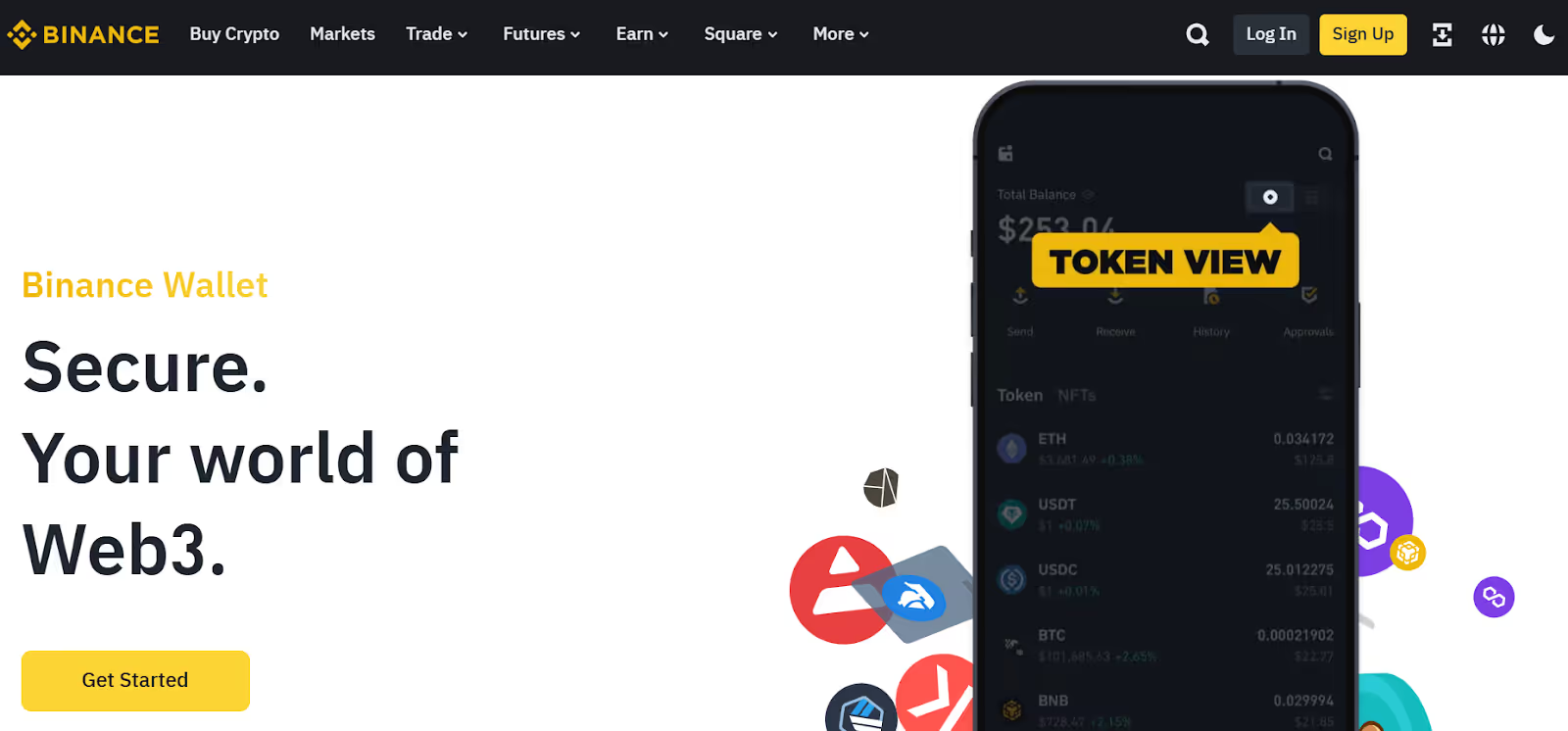
Binance Wallet is embedded in the Binance exchange and aimed at those who want easy access to their crypto assets, trading features, and DeFi tools in one place. Although it is a custodial wallet, it is convenient for people already conducting the trade on Binance and supports several blockchain networks.
● Integrated wallet inside the Binance platform
● Web3 alpha trading
● Trading bots
● Copy trading
● Access to decentralized finance, token swaps, and staking
● Quick transfers between wallets and the Binance spot account
● Convert and block trade
● Large asset support, including ERC-20 tokens
● Integrated trading and crypto investment
● Strong crypto security protections
● Custodial wallet, Binance controls your private keys
● Not ideal for users who want complete control or offline storage
● Limited backup flexibility if the Binance account is lost
As a custodial wallet, Binance holds your private keys. While it includes strong protections like 2FA and anti-phishing tools, you don’t have direct control over your keys.
Binance Wallet is suitable for those who prefer speed and convenience to self-custody. If you are trading frequently on Binance and want everything in one place, it does the work. However, it is not meant for long-term crypto storage.
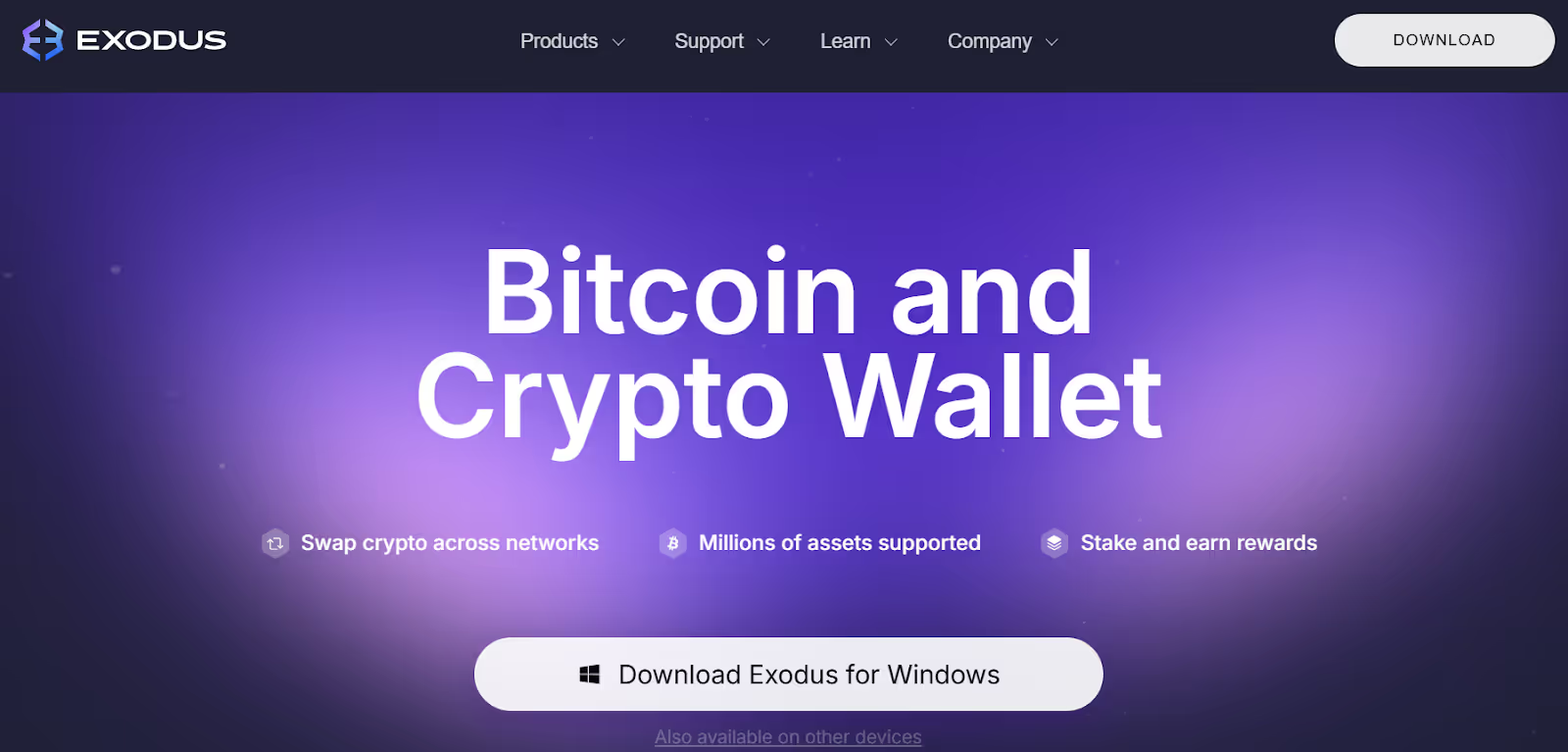
Exodus is a visually appealing, multi-cryptocurrency wallet for desktop and mobile. It is useful for both beginners and intermediate users with its intuitive interface, built-in exchange, and support for a wide range of tokens, including Ethereum and ERC-20 tokens.
● Web3 wallet
● Earn rewards
● Import tokens
● Built-in swap feature for quick crypto transactions
● Sync between mobile and desktop for convenient access
● Integration with Trezor hardware wallet
● Easy to use
● Visually clean and well-organized interface
● Wide asset support across software wallets
● Closed-source software may not appeal to privacy-focused users
● No built-in staking for Ethereum
● Lacks advanced security features compared to more technical wallets
Exodus is a non-custodial wallet, which means that it keeps your private keys stored locally. You may also integrate it with Trezor for an extra layer of security for your high-value funds.
Exodus is a strong choice for those who want a simple, clean way to handle their and track crypto portfolio. It may not be the most technical wallet, but it has adequate ease of use for basic DeFi and trading needs.
With so many wallets out there, it’s easy to get lost comparing features that all sound the same. However, if you are trading regularly, using DeFi apps, or hodling tokens over a long period, here are the five major things that actually matter.
Begin with how your wallet treats your private keys. Is it non-custodial? Does it offer 2FA or backup recovery? If you’re dealing with serious amounts, go for wallets equipped with hardware devices or those offering complete control over your seed phrase.
If you're into staking, yield farming, or using decentralized applications, then the wallet you use should make that easy for you. Built-in DeFi tools/dApp browsers save time and offer a smooth process when connecting to smart contracts.
For active trading or day trading, ensure that you have a wallet equipped for fast token swaps, simple DEX integration, and access to the most-used tokens. Some wallets have built-in access to decentralized exchanges, so you don’t need to change platforms.
The best Ethereum wallet should be able to operate on your device, whether a laptop, mobile phone, or browser. Research for wallets that support multi-device syncing, particularly if you are managing your entire portfolio across networks.
A wallet should not leave you feeling the need to watch a tutorial. Clean design, smooth onboarding, and inclusion of profitable tokens on DeFi, such as ERC-20 go a long way, especially for those switching from centralized exchanges.
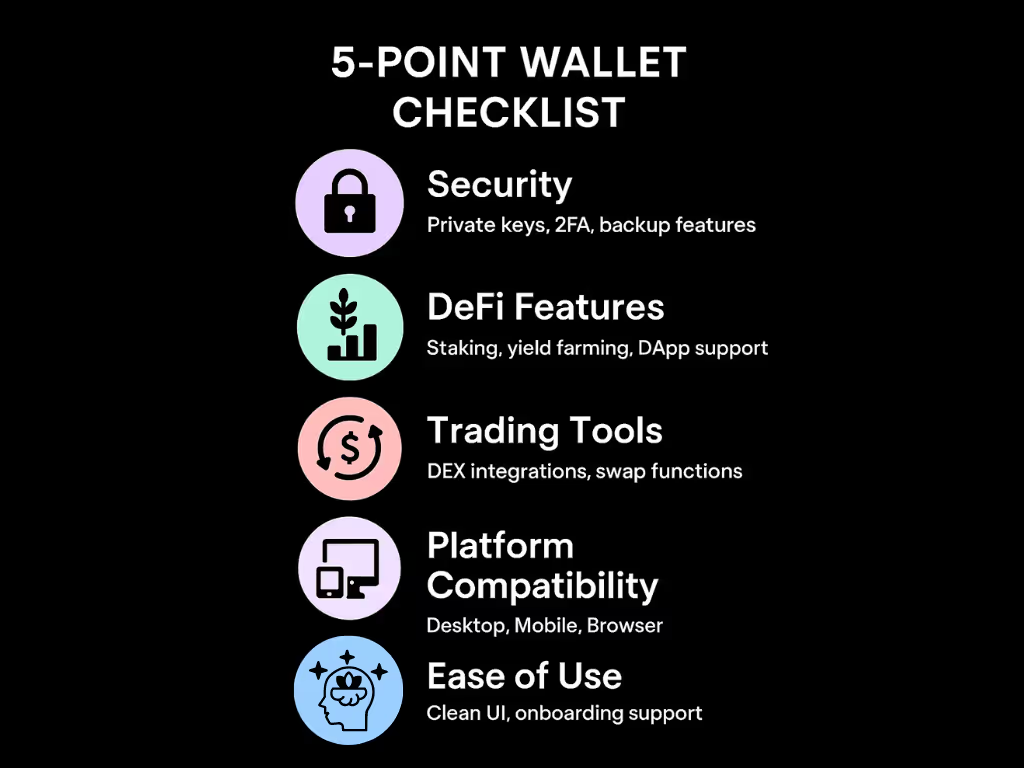
Your wallet stores your assets, but it doesn’t tell you what is happening in the market. That’s where Wallet Finder.ai comes in.
If you are one of the users of any of the wallets listed above, Wallet Finder.ai can help you analyze data on what profitable wallets are doing. Rather than guessing, you get to see what is working on the Ethereum network and what's not.
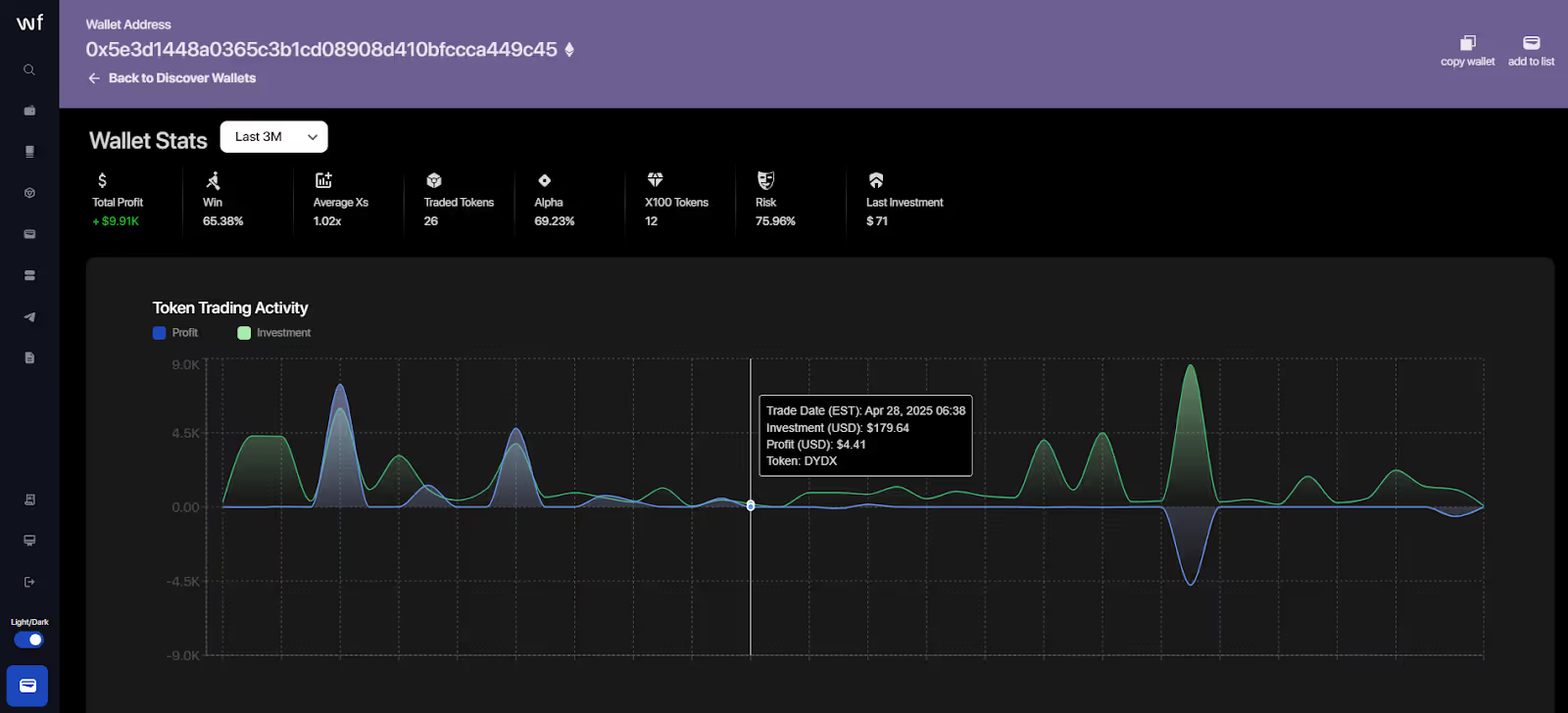
See which Ethereum wallets are generating real profits. You can sort by net profit, check their trade history, and even view investment vs. return graphs to understand how their strategies play out.
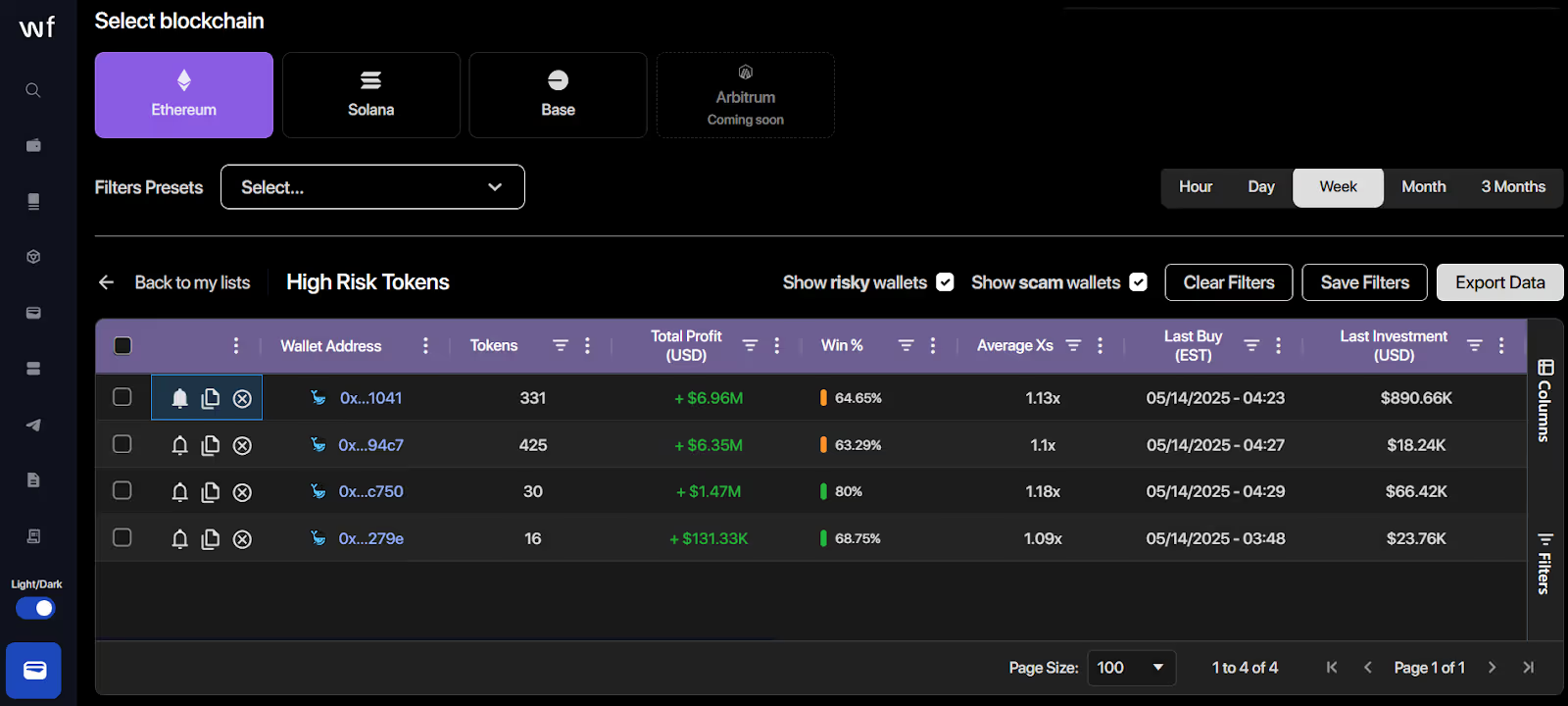
Mark any wallet you want to follow and get Telegram alerts when they make a move, whether it’s a token swap, a DeFi interaction, or a profitable exit. Simply click the bell icon that appears next to your favorite wallet lists and get notified in real-time.
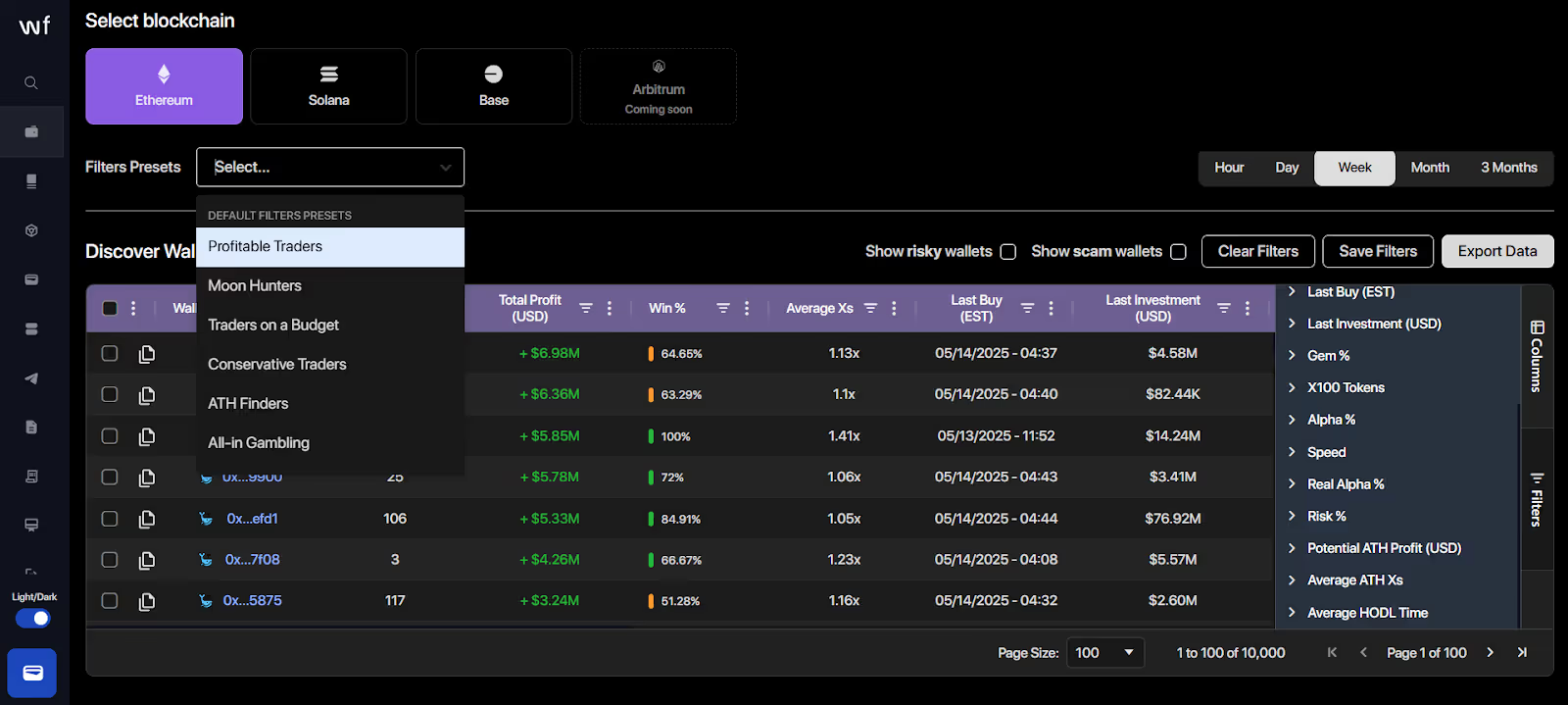
Wallet Finder.ai gives you access to more than just wallet addresses. You can filter by unique metrics like:
● Potential ATH Profit – Shows how much a wallet could’ve made if it sold at each token’s all-time high
● Number of 100x tokens traded – Find wallets with a history of identifying breakout tokens
● Alpha % – percentage of tokens in a wallet that did at least 5x and had an ATH over $1,500
● Initial Investment Amount – See how much capital each wallet started with
● Investment vs Profit Breakdown – Visual comparison between input and return over time
● Block Number of First Investment – Useful for spotting early entries
● Sniping Speed – Understand how quickly wallets buy after a token launch
● Hodl Time – Average time a wallet holds tokens before selling
● Total Trades Executed – Filter wallets by activity level
● Risk & Scam Filters – Hide wallets or tokens flagged as suspicious
These stats allow you to monitor strategies and not just wallets. It helps you stay away from noise and pay attention to your actual trading patterns, bringing the results.
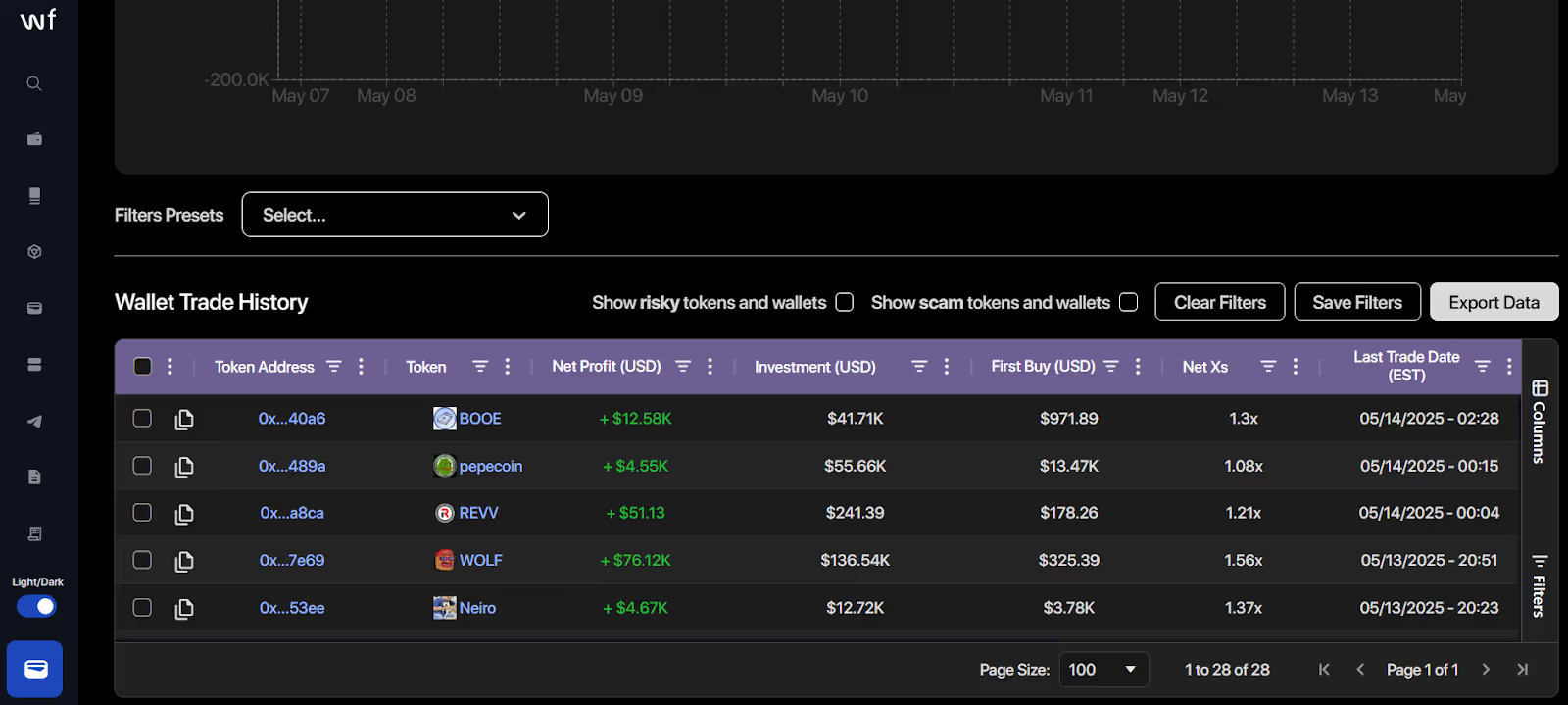
Feel like monitoring your own performance? Just connect your Ethereum wallet to see your trading history, profit/loss, and performance trends. It’s like a dashboard for your wallet, without you uploading anything manually.
Choosing the best Ethereum wallet is all about your trading habits, preferences, and the amount of control you want. Some wallets emphasize greater flexibility, while others focus on security, but the best ones maintain a balance between the two.
However, even the finest wallets cannot tell which traders generate real profits.
This is where Wallet Finder.ai makes a difference. It does not replace your wallet; it helps you make a smarter use of it. While copying wallets with high returns, tracking your own trades, or sifting through profitable strategies, Wallet Finder.ai puts into perspective what wallets alone cannot tell you.
Try Wallet Finder.ai for free, no credit card needed, and start making more informed trading decisions on Ethereum today.